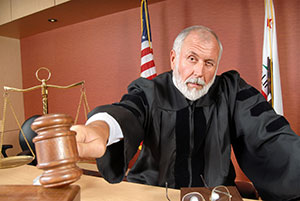GET UP TO 90% OFF
PROBATE FEES
SEE IF YOU QUALIFY TODAY!
Contact Us for a Free Consultation
Please Note: Limit of 1 free consultation per individual/family.
Elder Law Services Has Been Helping Families Preserve Wealth And Leave A Legacy For Future Generations Since 1995
Probate Attorneys in Southern California
At Elder Law Services of California, we pride ourselves in helping clients through difficult times. If a loved one has recently passed away and your family is forced to go through the probate process to settle their estate and distribute their assets and belongings that were left behind, our team is here to help you through the process.
 Probate can be a complicated and stressful process that requires multiple court appointments, filling out detailed forms, and an understanding of legal regulations. In truth, the entire process can be a “legal nightmare” for the layperson, and the last thing you may want after the death of a loved one is to deal with the matters of settling their estate. The undertaking is simply too much for an untrained person.
Probate can be a complicated and stressful process that requires multiple court appointments, filling out detailed forms, and an understanding of legal regulations. In truth, the entire process can be a “legal nightmare” for the layperson, and the last thing you may want after the death of a loved one is to deal with the matters of settling their estate. The undertaking is simply too much for an untrained person.
Probate is a tedious situation that requires submitting documents, filing notices, and informing various government agencies of scheduled hearings. There may also be moments where a probate judge or a court representative will ask to review documents, which will leave you scurrying to and from the courts without much notice or time. Hiring a probate attorney, however, will help you skip the courtrooms entirely, as an attorney can handle all those affairs on your behalf.
Have a Los Angeles Probate Attorney Get the Job Done Right
Probate attorney Judd Matsunaga will help you take possession of the deceased person’s property and provide expert advice regarding estate management. Assets such as bank accounts, securities accounts, deeds to real estate properties, jewelry and other assets will need to be inventoried and appraised during the probate process. Once those items are taken care of, a final distribution of the estate is typically made soon after a federal estate tax return has been filed (generally around nine months after the date of death).
While you are not required to use a lawyer during probate, the entire process is extremely complicated, and any minor omissions or missed deadlines will only slow down or even stop probate in its tracks. That is not to mention how unpopular these mistakes will make you with those beneficiaries waiting for the distribution of the family’s assets.
Best Probate Attorney Near You
Hiring a probate attorney will only provide you with the peace of mind that your family’s affairs are being handled in the proper and most efficient manner possible. If you are searching for a probate attorney, give us a call at Elder Law Services of California. Once you sit down with our team, if you decide we are a good fit, then Elder Law services will put together a specific plan of action that reflects your family’s desires and wishes as to how the probate process should proceed.
Call For Your
Free Consultation
Call Elder Law Services of California today at
(800) 403-6078
to schedule a FREE Consultation with one of our expert lawyers.
What Questions Should You Ask a Probate Attorney?
What is probate?
How do I avoid probate in California?
In California, you can hold almost any type of asset you own in a living trust to avoid probate. Stocks, Mutual Funds, Real estate, bank accounts, and even motor vehicles can all be held in a living trust. A living trust document names yourself as trustee and someone else as the “successor trustee” who will take over management responsibilities as trustee after you die.
Who initiates probate?
What happens during probate?
What is not subject to probate?
How long will probate take?
When will our family receive property or assets?
Do I need an attorney?
Why hire a probate attorney? While you are not legally required to retain an attorney during probate, the entire court process is complicated and tedious which requires a dedicated attorney who understands probate laws and regulations. Most people do not have the time to make court appearances, gather documents and file the correct paperwork, let alone even have the knowledge to know how to do so correctly. Any missed deadlines or incorrectly file documents will only cause a huge delay in the probate process and keep your family’s assets tied up in court for much longer than they need to be.


